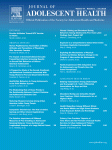Abstract:
PURPOSE: To examine the effect of a community-based sexually transmitted infection (STI) screening program on sexual risk behavior among African American adolescents. We hypothesized that adolescents testing positive for an STI and receiving post-test counseling would reduce risky sexual practices, whereas STI-negative adolescents would show little or no change in protective sexual behavior after screening.
METHODS: From August 2006 to January 2008, we recruited 636 sexually active African American adolescents (age, 14-17) from community-based organizations in two mid-sized U.S. cities with high STI prevalence. Participants were screened for three STIs (gonorrhea, chlamydia, and trichomoniasis) and completed an audio computer-assisted self-interview. Youth who tested positive for an STI (6.6%) received treatment and counseling. Youth testing negative received no further intervention. Approximately 85% of participants completed 3- and 6-month follow-up assessments. Generalized estimating equations determined the effects of STI screening on adolescents’ number of sexual partners and occurrence of unprotected sex.
RESULTS: Adolescents who tested positive for an STI reduced their number of vaginal and oral sex partners and the probability of unprotected sex. STI-negative adolescents demonstrated no change for numbers of partners or unprotected sex.
CONCLUSIONS: Community-based STI screening can help to reduce sexual risk behavior in youth who test positive for STIs. Alternative approaches will be needed to reduce risk behavior in youth who test negative but who are nevertheless at risk for acquiring an STI.
Authors
- Larry K. Brown
- Angela Caliendo
- Michael P. Carey
- Ralph J. DiClemente
- Naomi Farber
- Christie Rizzo
- Daniel Romer
- Laura F. Salazar
- Sharon Sznitman
- Bonita F. Stanton
- Robert F. Valois
- Peter A. Vanable


